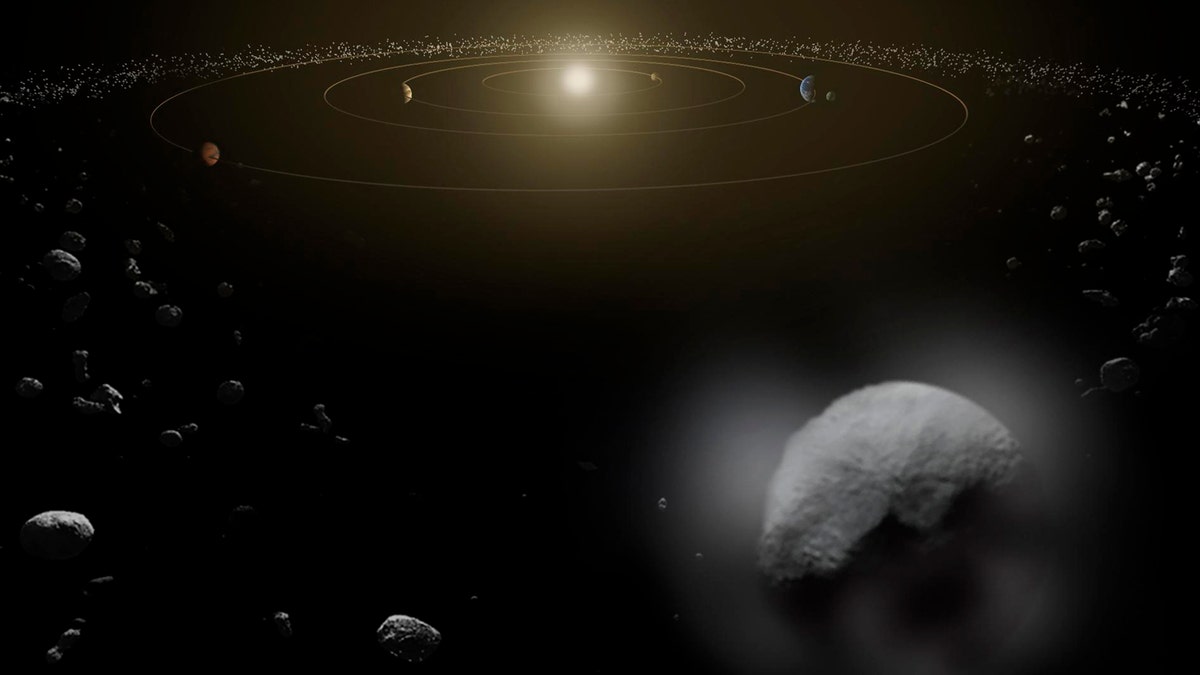
File photo: Dwarf planet Ceres is seen in the main asteroid belt, between the orbits of Mars and Jupiter, as illustrated in this undated artist's conception released by NASA January 22, 2014. (REUTERS/NASA/ESA/Handout via Reuters)
In an effort to mine precious metals potentially worth trillions of dollars and aid interstellar travel, China has unveiled plans to build a base on an asteroid, likely to happen "in the near future."
Ye Peijian, the Chief Commander and Chief Designer of the Chinese Lunar Exploration Program, revealed details that could potentially put an umanned craft on an asteroid and mine the rock for metals like palladium, platinum and others that are used in items such as smartphones and automobiles.
“In the near future, we will study ways to send robots or astronauts to mine suitable asteroids and transport the resources back to Earth,” Peijian said in comments captured by China Daily.
NASA's CASSINI PROBE FINDS 'BIG EMPTY' ON DARING SATURN RING DIVE
Earlier this year, Pieijian said that China could conduct one exploration mission between 2020 and 2025, though no further details, such as the exact date or the asteroid are known.
Not only would the asteroids serve as bases for missions and help with "interstellar exploration" as Peijian noted, but the economic impact of mining the asteroids could be worth trillions of dollars, according to Goldman Sachs.
Goldman Sachs analyst Noah Poponak noted that one asteroid could have as much as $50 billion worth of platinum, as well as water and other precious resources.
"Water and platinum group metals that are abundant on asteroids are highly disruptive from a technological and economic standpoint," Poponak wrote in an investor note. "According to a 2012 Reuters interview with Planetary Resources, a single asteroid the size of a football field could contain $25bn- $50bn worth of platinum," the analyst added.
NASA has said for several years, going back to 2013, that it too intends to mine asteroids.
In January 2017, NASA said the spacecraft Pysche could be used to study and potentially mine 16 Pysche, an asteroid thought to be the remains of a dead planet.
In 2016, Jeff Bezos revealed plans for his space company, Blue Origin and noted all heavy industry would move to space -- which would include asteroid mining -- "[s]ometime in the next few hundred years."








































